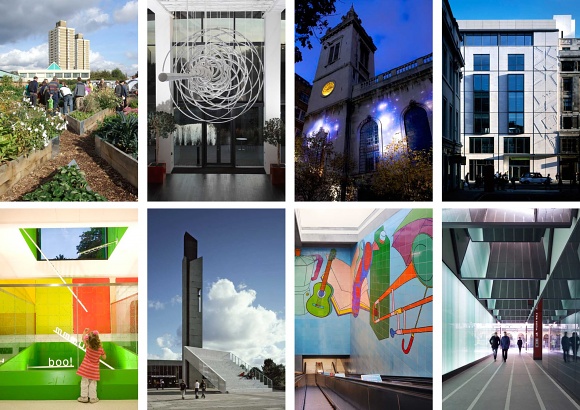
Modus Operandi’s work covers three distinct yet overlapping areas:
Strategies, Art Commissions and Advocacy and Best Practice.
Strategies for Art & Public Realm
Integrating art within architecture and public places is at the heart of Modus Operandi’s practice. We help our clients to commission the best art possible by creating strategies that are tailored to their individual needs. Our strategies start with a vision for the scheme and propose a curatorial approach based on best practice principles and the key themes and starting points for the project. We work through the opportunities for artists, propose interdisciplinary collaborations, devise appropriate governance, selection and evaluation procedures, and timeframe and budgets for the art programme. In short, the strategies we write give clients the vision and confidence to commission the highest quality art as an integral element of their project.
Modus Operandi is frequently invited to be a member of multi-disciplinary design teams for regeneration, development projects and architectural/landscape schemes. As a result we contribute to strategies, advising on creative cultural programming and providing specific public art guidance.
Art Commissions: permanent and temporary
We produce unique, site-specific artistic interventions, working with a wide range of clients and artists. From permanent and temporary public art commissions, to art integrated within architecture and installations for interior environments, Modus Operandi offers artistic direction and a full management service specific to each project.
The range of our work encompasses as wide a variety of artistic approaches as there are creative minds: artist-designed public places, art and architecture collaborations, lighting, sculpture, water, glazing, sound, poetry, film and video, documentary projects and artists’ residencies and research projects are just some of the areas covered in our commissioning portfolio to date.
We research artists specifically for each project as well as referring to our extensive database of practitioners where appropriate. We organise every aspect of the commissioning process, from curatorial direction and artist selection through to contracts, public consultation, project management and installation (see Consultancy Service).
Advocacy & Best Practice
Modus Operandi‘s team members have an exceptional track record in developing best practice in the field of public art.
Our experience has been sought by numerous public sector bodies including Arts Council England (ACE) and UNESCO. Reports on best practice commissioned by ACE include the chapter Commissioning Guidelines for the publication Open Space (2007), and Reviewing the Case for Percent for Art (2008).
Modus Operandi offers Continuing Professional Development (CPD) sessions for architectural and other design practices.
Current research into best practice in commissioning art in the public realm has led to the formation of a professional membership network: The Institute of Public Art Curators and Commissioners, currently at feasibility stage.
We also contribute to national and international conferences, seminars and publications.
Consultancy Service
For each project, Modus Operandi agrees a scope of work and task/fee analysis for consideration by the client. With most clients and design teams understanding the need to integrate art into architecture and the public realm as early as possible, Modus Operandi is often appointed by clients when or soon after they appoint their architects, landscape architects or urban planners.
In summary, our consultancy service includes the following areas of work:
- providing artistic direction on all aspects of the project
- writing art strategies, plans and artists’ briefs
- identifying scope for art commissions
- researching artists and other creative practitioners
- organising selection procedures and panels
- brokering collaborations between artists, architects and others
- organising workshops/charrettes and consultation sessions
- devising funding strategies including percentage for art
- researching further sources of funds
- applying for statutory permissions
- drafting contracts and schedules
- advising on ownership and maintenance
- organising documentation, exhibitions and publications
- giving presentations and organising conferences
- managing projects to successful completion
- evaluating the outcome.
Image captions - Top row left to right:
1) What Will the Harvest Be? Somewhere, Abbey Gardens, Stratford, London © Nina Pope; 2) Fraction 9:8 Conrad Shawcross, Oxford Science Park © D.Hatfull / The Oxford Science Park; 3) Nocturne David Ward, London © Richard Davies; 4) 111 Strand Langlands & Bell, London © Morley von Sternberg;
Bottom row left to right:
5) Mobile Milou van Ham, Sunshine House, London © Richard Bailey / Guy's and St Thomas' Charity; 6) La Scala Mark Pimlott, University of Aberystwyth © Modus Operandi; 7) Street Life Michael Craig-Martin, Woolwich Arsenal DLR Station, London © Alan Williams / DLR; 8) Timelines, Daniela Schönbächler, London © Paul Riddle